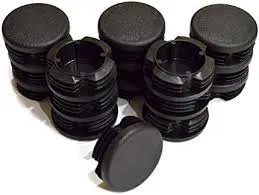Mobile:+86-311-808-126-83
Email:info@ydcastings.com
English
pressure vessel end caps
Pressure Vessel End Caps Importance and Design Considerations
Pressure vessels are essential components in various industries, including oil and gas, chemical processing, and power generation. They are designed to hold gases or liquids at pressures significantly different from the ambient pressure. One critical element of these vessels is the end cap, which plays a vital role in maintaining the integrity and safety of the system.
What Are Pressure Vessel End Caps?
End caps, also referred to as closures or heads, are the components that seal the ends of a pressure vessel. They can be flat or curved, depending on the design requirements, and are made from materials that can withstand high pressures and corrosive environments. The primary function of these end caps is to contain the internal pressure of the vessel while ensuring that the contents remain secure during operation.
Types of End Caps
There are several types of end caps used in pressure vessels, each designed for specific applications
1. Flat End Caps These are the simplest form and are typically used in low-pressure applications. They are easier to manufacture but have limitations in terms of their strength.
2. Hemisphere Ends Commonly used in high-pressure applications, these caps have a curved shape that provides better structural integrity and resistance to deformation under stress.
3. Ellipsoidal Heads These provide a balance between weight and strength and are often preferred for large vessels due to their efficient stress distribution.
pressure vessel end caps

Material Selection
The material used for pressure vessel end caps is crucial for safety and performance. Common materials include carbon steel, stainless steel, and various alloys. The choice of material depends on multiple factors, such as the type of fluid being held, operating temperatures, and environmental conditions. For instance, stainless steel is favored for its corrosion resistance, while carbon steel is often used for its cost-effectiveness in applications that do not require high corrosion resistance.
Design Considerations
The design of pressure vessel end caps needs to incorporate various engineering principles to ensure safety and reliability. Some critical factors to consider include
1. Pressure Rating The end caps must be able to withstand the maximum internal pressure expected during operation. Engineers often use ASME (American Society of Mechanical Engineers) guidelines to determine the appropriate thickness and shape for the end caps.
2. Welding and Fabrication The joints between the end caps and the vessel body are critical for maintaining pressure integrity. High-quality welding techniques are necessary to prevent leaks and ensure structural strength.
3. Safety and Compliance Pressure vessels and their components must comply with industry standards and regulations. Regular inspections and testing are often required to ensure that end caps maintain their performance and integrity over time.
4. Thermal Expansion Given that pressure vessels often operate under varying temperature conditions, designers must account for thermal expansion to avoid failure due to stress concentration.
Conclusion
Pressure vessel end caps are fundamental components that ensure the safe and efficient operation of pressure vessels across various industries. Their design, material selection, and compliance with safety standards are crucial for maintaining the structural integrity of these essential systems. As technology continues to evolve, the development of new materials and manufacturing techniques will further enhance the performance of pressure vessel end caps, ensuring they meet the demands of ever-increasing pressures and operational complexities. Understanding and addressing these factors is vital for engineers and manufacturers working in this critical field.
-
Materials Used in Manufacturing Cap End Pipe FittingsNewsNov.24,2025
-
Material Properties of CF8M CastingNewsNov.24,2025
-
How to Inspect Pump Cap Ends for DamageNewsNov.21,2025
-
Backward Curved Impeller – Efficient Airflow Solutions for Industry | YD CastingsNewsNov.21,2025
-
Automobile Water Pump - Efficient, Quiet, Durable & ElectricNewsNov.21,2025
-
Impeller for Pumps – High-Efficiency, Durable, OEM-ReadyNewsNov.21,2025











